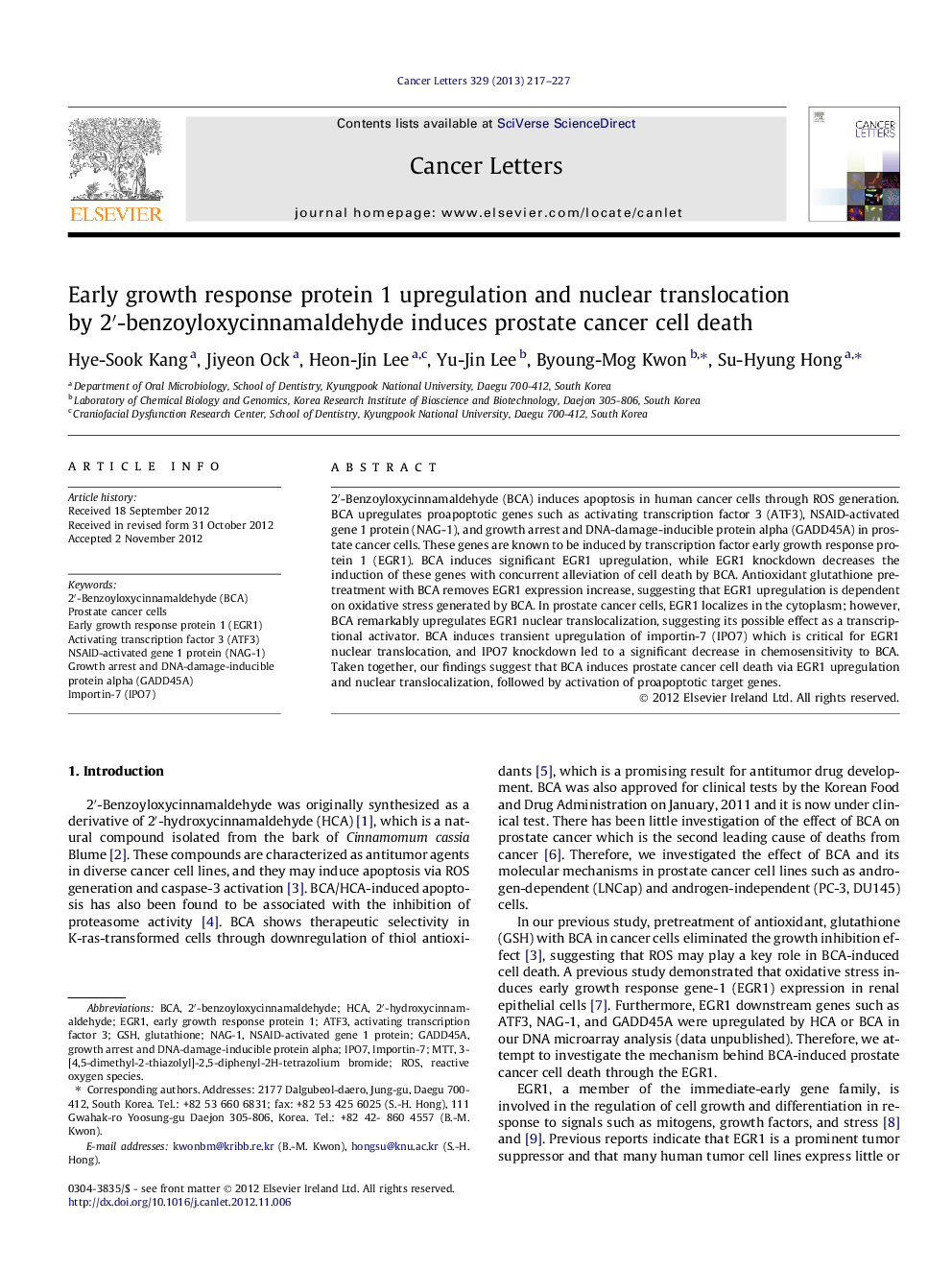| کد مقاله | کد نشریه | سال انتشار | مقاله انگلیسی | نسخه تمام متن |
|---|---|---|---|---|
| 2113108 | 1084442 | 2013 | 11 صفحه PDF | دانلود رایگان |

2′-Benzoyloxycinnamaldehyde (BCA) induces apoptosis in human cancer cells through ROS generation. BCA upregulates proapoptotic genes such as activating transcription factor 3 (ATF3), NSAID-activated gene 1 protein (NAG-1), and growth arrest and DNA-damage-inducible protein alpha (GADD45A) in prostate cancer cells. These genes are known to be induced by transcription factor early growth response protein 1 (EGR1). BCA induces significant EGR1 upregulation, while EGR1 knockdown decreases the induction of these genes with concurrent alleviation of cell death by BCA. Antioxidant glutathione pretreatment with BCA removes EGR1 expression increase, suggesting that EGR1 upregulation is dependent on oxidative stress generated by BCA. In prostate cancer cells, EGR1 localizes in the cytoplasm; however, BCA remarkably upregulates EGR1 nuclear translocalization, suggesting its possible effect as a transcriptional activator. BCA induces transient upregulation of importin-7 (IPO7) which is critical for EGR1 nuclear translocation, and IPO7 knockdown led to a significant decrease in chemosensitivity to BCA. Taken together, our findings suggest that BCA induces prostate cancer cell death via EGR1 upregulation and nuclear translocalization, followed by activation of proapoptotic target genes.
Journal: Cancer Letters - Volume 329, Issue 2, 28 February 2013, Pages 217–227